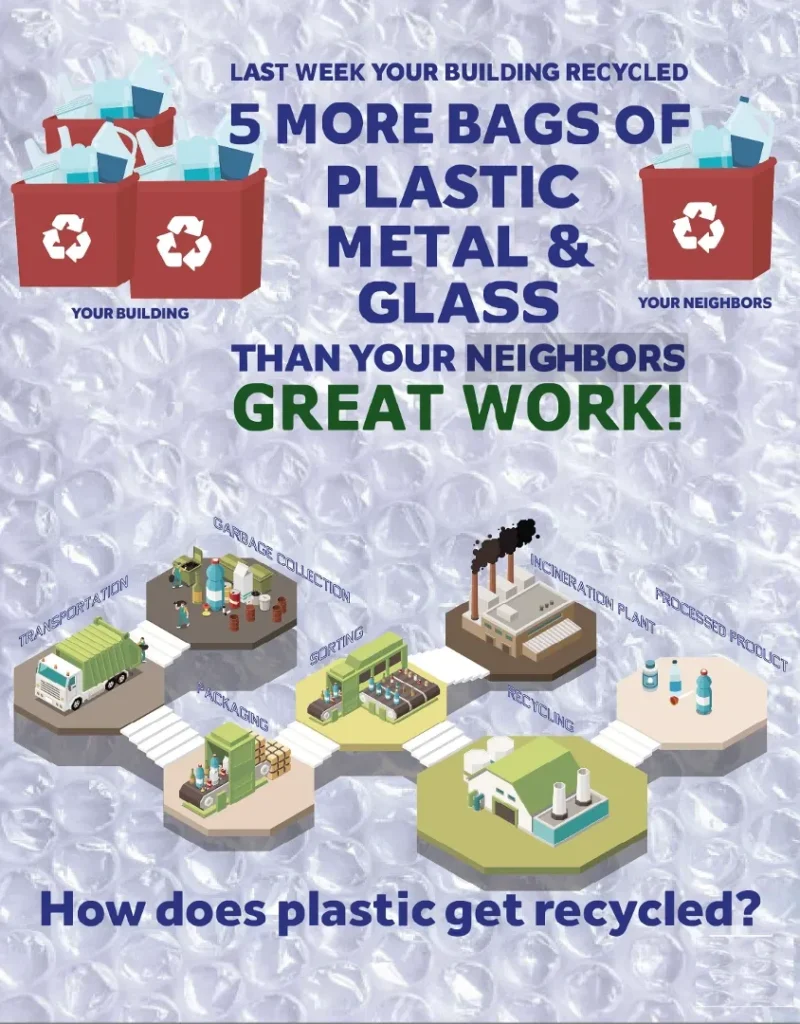Dr. Elizabeth Hewitt, Associate Director of Stony Brook University’s Waste Data & Analysis Center (WDAC), is gaining recognition for her research on recycling incentives. A recent Scientific American article titled “Guilt-Tripping for the Public Good Often Achieves Its Intended Result” highlighted Dr. Hewitt’s work, published in the journal Resources, Conservation, and Recycling Advances.
The study involved a 12-week experiment in two neighboring New York City apartment buildings. WDAC researchers placed weekly signs in the trash rooms, providing feedback on each building’s recycling performance. One sign compared a building’s recycling output (plastics, metals, glass) to the previous week’s results, while the other compared it to the neighboring building’s performance during the same week.
Interestingly, both buildings increased their recycling by weight. However, the comparison with neighbors led to a significantly greater increase in recycled materials. Dr. Hewitt suggests that peer pressure likely plays a role. Additionally, residents may feel a sense of guilt when they perceive themselves as recycling less than their peers. Conversely, surpassing their neighbors might trigger a sense of pride.

